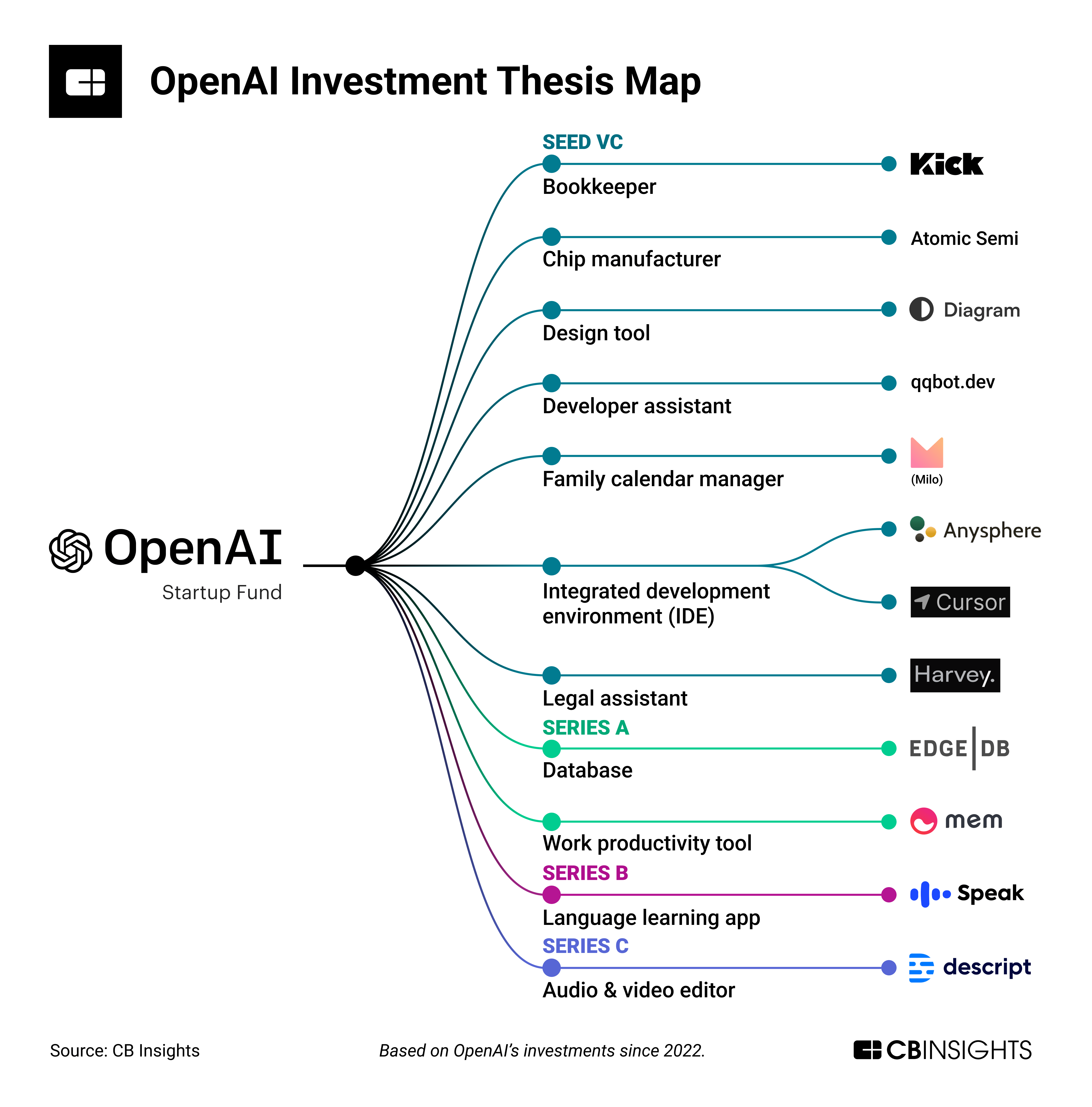Revolutionizing Voice Assistant Development: OpenAI's New Tools

Table of Contents
Enhanced Natural Language Processing (NLP) Capabilities
OpenAI's advancements in NLP are at the heart of its revolution in voice assistant development. These improvements translate to more accurate, natural, and engaging conversations between users and their voice assistants.
Improved Speech-to-Text Conversion
The accuracy and speed of converting spoken words into text are critical for any voice assistant. OpenAI's Whisper API significantly improves this crucial aspect of voice assistant development.
- Higher accuracy: Whisper boasts significantly higher accuracy rates compared to previous generation speech-to-text engines, even in noisy environments or with diverse accents.
- Reduced latency: The API processes speech incredibly quickly, minimizing delays between user input and the assistant's response, leading to a smoother user experience.
- Improved handling of accents and dialects: Whisper demonstrates robust performance across a wide range of accents and dialects, making voice assistants more accessible and inclusive.
- Support for multiple languages: The API supports multiple languages, opening up global opportunities for voice assistant development and deployment.
This improved speech-to-text functionality is a game-changer, enabling developers to build voice assistants that understand and respond accurately even in complex and challenging acoustic environments.
More Sophisticated Dialogue Management
Beyond simple command-response interactions, OpenAI's models enable significantly more sophisticated dialogue management in voice assistant development. This means more natural and engaging conversations.
- Contextual understanding: OpenAI's models possess a deep understanding of context, allowing them to follow the flow of a conversation and provide relevant responses.
- Ability to handle complex conversations: They can manage multi-turn dialogues, remembering previous interactions and maintaining context throughout extended conversations.
- Proactive assistance: Voice assistants can anticipate user needs and offer assistance proactively, enhancing the user experience.
- Personalized responses: The models can tailor responses based on user history, preferences, and context, creating a more personalized and engaging interaction.
Models like GPT-4, integrated into the OpenAI ecosystem, are key to enabling this level of sophisticated dialogue management, pushing the boundaries of what's possible in voice assistant development.
Advanced Personalization and Customization Options
OpenAI's tools empower developers to create truly personalized voice assistant experiences. This level of customization fosters deeper user engagement and satisfaction.
User-Specific Voice Profiles
Creating unique voice profiles for each user elevates the personalization aspect of voice assistant development.
- Creation of unique voice profiles: Developers can utilize OpenAI's tools to create voice assistants that adapt to individual user voices and preferences.
- Personalized responses: The assistant can tailor its responses to match the user's communication style and preferences.
- Adaptive learning: The system continuously learns from user interactions, further refining its personalization capabilities over time.
- Integration with user data (with privacy considerations): By carefully integrating user data (with strict adherence to privacy regulations), the voice assistant can offer increasingly relevant and personalized experiences. OpenAI emphasizes responsible AI development and data privacy.
This focus on personalization sets a new standard for user interaction with voice technology.
Seamless Integration with Existing Platforms
OpenAI prioritizes ease of implementation, offering developers seamless integration with various platforms.
- Easy integration with popular smart home devices: Developers can readily integrate OpenAI's tools into existing smart home ecosystems, extending the functionality and capabilities of these devices.
- Integration with mobile apps and other platforms: The tools provide APIs and SDKs for effortless integration into mobile applications and other platforms, expanding the reach of voice assistants.
- SDKs and APIs available: OpenAI provides readily available and well-documented SDKs and APIs, simplifying the integration process for developers of all skill levels.
- Cross-platform compatibility: The tools strive for compatibility across various platforms, ensuring broad reach and flexibility for developers.
This ease of integration significantly reduces the time and resources required to build and deploy voice assistants, accelerating innovation in the field.
Improved Security and Privacy Features
Security and privacy are paramount in voice assistant development. OpenAI's tools incorporate robust measures to protect user data and prevent misuse.
Data Encryption and Anonymization
OpenAI prioritizes secure data handling and privacy preservation.
- Secure data handling: Data is encrypted and protected using industry-standard security protocols.
- Privacy-preserving techniques: Techniques like differential privacy are employed to minimize the risk of identifying individual users.
- Compliance with relevant regulations (GDPR, CCPA etc.): OpenAI's tools are designed to comply with relevant data privacy regulations globally.
These robust security measures ensure that user data is handled responsibly and ethically.
Robust Fraud Detection Mechanisms
Protecting against malicious actors is critical. OpenAI implements strong fraud detection mechanisms.
- Prevention of unauthorized access: The system incorporates multiple layers of security to prevent unauthorized access to user data and the voice assistant itself.
- Detection of malicious intent: Sophisticated algorithms detect and respond to potentially malicious activities.
- Safeguards against voice cloning and spoofing: Measures are in place to protect against voice cloning and spoofing attacks, safeguarding user accounts and data.
These features contribute to a secure and trustworthy voice assistant experience.
Conclusion
OpenAI's new tools are revolutionizing voice assistant development by offering significant advancements in NLP, personalization, and security. These innovations empower developers to create more sophisticated, user-friendly, and secure voice interfaces. The possibilities are vast, from creating more intuitive smart home assistants to developing cutting-edge conversational AI for various applications.
Call to Action: Dive into the future of voice assistant development with OpenAI's cutting-edge tools. Explore the possibilities and learn how you can leverage these advancements to build the next generation of intelligent voice assistants. Start exploring OpenAI's resources for voice assistant development today!

Featured Posts
-
 Investing In Middle Management A Strategic Move For Business Growth And Employee Retention
Apr 22, 2025
Investing In Middle Management A Strategic Move For Business Growth And Employee Retention
Apr 22, 2025 -
 Swedens Tanks Finlands Troops A Look At The Pan Nordic Defense Force
Apr 22, 2025
Swedens Tanks Finlands Troops A Look At The Pan Nordic Defense Force
Apr 22, 2025 -
 Trump Opposition Examining The Nationwide Protests
Apr 22, 2025
Trump Opposition Examining The Nationwide Protests
Apr 22, 2025 -
 Anchor Brewing Company Closing After 127 Years The End Of An Era
Apr 22, 2025
Anchor Brewing Company Closing After 127 Years The End Of An Era
Apr 22, 2025 -
 Ftc To Appeal Microsoft Activision Merger Ruling
Apr 22, 2025
Ftc To Appeal Microsoft Activision Merger Ruling
Apr 22, 2025
